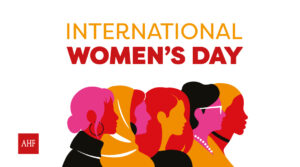Sexual activity is an aspect of life that we cannot ignore. It is one of the most important components for people’s well-being, which is why its practice is more accepted and discussed today than it was a few decades ago.
And although it is an undeniable source of pleasure, it is also true that doing it in a certain way can bring health risks, which makes it necessary to talk about sex clearly to know how to carry it out in safer ways.
What are risky practices?
First, it is important to understand that sexual activity must comply with a golden rule: it must be carried out between two (or more) people who are voluntarily involved, and who have full capacity to consent. This means, for example, that when there is a drug involved, or if there is violence or coercion of any kind, the person is not fully capable of consenting to have sexual relations.
After clarifying this, risky sexual practices could be defined as those acts or behaviors that can lead to unwanted results. The most common example for this would be (heterosexual) sex without a condom or any contraception, which could lead to an unintended pregnancy.
Secondly, it is known that sex without a protection barrier, that is, without an external or internal condom (also called vaginal), can lead to sexually transmitted infections (STIs).
But don’t worry, there are ways to avoid a risky practice without having to give up the pleasure of a full and safe sex life.
How to reduce risks in sexual activities?
For each sexual practice, various ways of reducing risk can be identified so that the only thing left after an encounter is satisfaction.
For example, STIs are those infections that are transmitted specifically through vaginal, anal, or oral sexual contact, and can range from fungi that are easy to kill to viruses that could put your life at risk, such as HIV. The most effective way to reduce the risk of acquiring STIs during your sexual activity is to use a preventive barrier method, such as a condom or a latex barrier for practices such as oral sex.
Another practice that is considered a risk to your sexual health is the high number of sexual partners, since, by simple statistical probability, there is a greater chance that you will acquire an STI if you have more than one sexual partner. The option to reduce risk is to use condoms in all your sexual partners, in addition to getting regular medical tests for STIs. It’s also important to have honest conversations with the people you’re sexually involved with so you can choose a strategy to protect each other from any infection.
A specific practice that is considered risky sex is anal sex. This is because the anus and rectum are structures whose tissue is fragile and could be easily injured, allowing STIs and other harmful microorganisms to enter the body. Remember that anal sex can not only involve a penis, but also fingers or the mouth. The way to reduce the risk of this practice is to use water-based lubricant, which decreases the risk of injuring the rectum. In addition, of course, barrier methods such as condoms and latex squares are a very effective tool for not transmitting microorganisms from one person to another.
In addition to practices, there are also behaviors that expose you to damage to your sexual health. One of them is having sex while you are under the influence of alcohol or drugs. Several studies have shown that people are more prone to risky practices when they have these effects. To reduce the risk of this behavior, it is best to cut down on alcohol and avoid using other drugs before engaging in sexual activity. However, if this is not possible, a condom should always be on hand to protect you if you engage in sexual intercourse while drunk or high.
As you can see, for each situation there is always an answer, and this consists of thinking about how to protect yourself before you find yourself in a clearly sexual situation that does not totally depend on you. Planning your encounters and how you want to live your sex life in general will help you keep in mind ways to take care of yourself.
Remember that at AHF Latin America and the Caribbean we carry out free HIV detection tests and have free condoms for you, in addition to other sexual health services. Come to our offices in your country or write to us by Whatsapp and we will solve your doubts.






